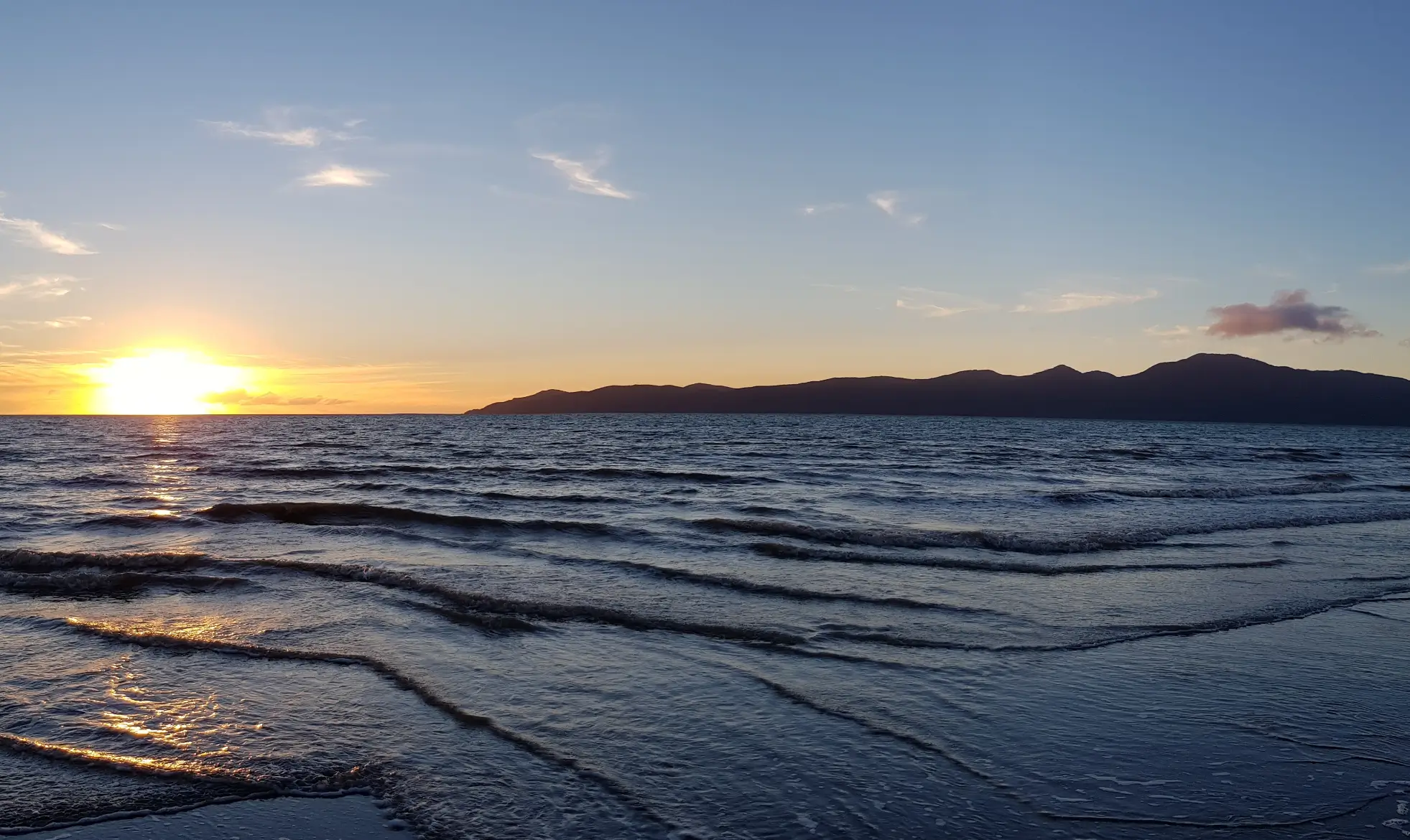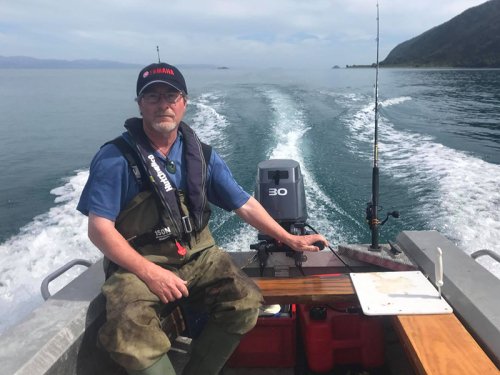
I grew up in South Africa and spent holidays fishing, learning to row, and messing around on small boats. Fast-forward to 1980, when I joined the merchant navy as a brand-new engineering cadet – and sailed out of the harbour where we used to spend our holidays, on board the largest ship on the South African Register – the 297m iron ore carrier Sishen.
As Chief Executive of the FISH Safety Foundation, a small but global non-profit, I get involved in management, fund-raising, marketing, developing training and guidance material, and on-the-ground work with our clients. And to keep up to date with maritime issues, I provide specialist risk management and human element training under the Nautical Institute banner.

Eric Holliday – Paraparaumu Beach, New Zealand
After leaving the sea, I worked in general engineering. When I met an industrial psychologist on a training course who introduced me to the human factors (human element) way of thinking, I was hooked. 34 years later, I still take time to train mariners in that discipline!
In the early 90s I joined the National Occupational Safety Association in South Africa as their first maritime safety consultant. In 1997, I started my own maritime consultancy and migrated to New Zealand in 2001, where I carried on training and consulting for another 15 years until I decided to start the Foundation.
The idea for a non-profit, working globally to promote fishing safety was prompted back in South Africa in the late 90s when I provided the International Labour Organization with information on fisher safety and fatality numbers for Southern Africa.
I couldn’t resist the challenge of making a difference to the lives of millions of fishers who go out every day to feed their families, communities, and the world.
Fishing is the deadliest occupation in the world – new research by the FISH Safety Foundation currently underway suggests that the annual fisher fatality figure may well be in excess of 100,000 – that would be equivalent to the total number of fatalities of nearly 70 ‘Titanics’ every year! And taking this analogy further, just two years after the Titanic sank in 1912, with the loss of 1,500 lives, the international community had already drafted the benchmark maritime safety legislation – the Safety of Life at Sea (SOLAS) Convention. However, fishing isn’t covered by SOLAS, and as an industry, we’ve been trying to get a similar convention in place for the last 45 years. We’re now hoping that enough countries will ratify the Cape Town Agreement (CTA) by the end of this year.
Unfortunately, nothing has changed for the better – there is more criminality, Illegal, Unreported and Unregulated (IUU) fishing, slavery, hardship, climate change, lack of safety equipment, and indifference by authorities…
To help make fishing a safer and more sustainable occupation. For millions of fishers across the world, what they do is more than a job. It’s a part of who they are. Fisheries contribute to livelihoods, employment and income, with particular importance in coastal communities in developing countries. The FAO estimates that fisheries and aquaculture support the livelihoods of 10–12 percent of the world’s population, with some 200 million along the value chain from harvesting to distribution.
In many parts of the world, small-scale fishers are driven into illegal fishing activities, often out of sheer desperation. This is happening everywhere from the mangroves of Bangladesh to the inland lakes of Africa. Most small-scale fisheries are open access, resulting in unrestricted access to the already strained resources.
Millions of people rely directly on fishing for their food and livelihood security. In many cases, individuals are drawn into IUU fishing activities through the absence of alternative income opportunities. Poverty, climate change and overfishing are significant drivers for IUU. But the dangers are very real for many of these fishers – they can face being shot by another fisher with an AK47 rifle, or risk being attacked by a hippopotamus or Bengal tiger!
In my first months at sea, my boss, the second engineer gave me hell for placing my hands incorrectly when reassembling a large valve. Later that day, he walked up to me in the bar and quietly said: “Eric, your round?” – making it clear that it was his job to manage my work, and keep me safe, but after hours, we were shipmates.
Do something. Make the world a better place.
I’m chair of the IMarEST’s Global Fisheries Improvement SIG which is very much a work in progress. If anyone is interested in joining, see the links below.
I’ll keep trying to make fishing (and maritime) safer occupations.
To become a member of the Global Fisheries Improvement SIG, log into your My IMarEST account, click on My Special Interest Groups and then tick the boxes of the SIGs you’d like to join. You can then also join the group on Nexus, our networking platform.”